Jan Pfister
ModernGBERT: German-only 1B Encoder Model Trained from Scratch
May 19, 2025Abstract:Despite the prominence of decoder-only language models, encoders remain crucial for resource-constrained applications. We introduce ModernGBERT (134M, 1B), a fully transparent family of German encoder models trained from scratch, incorporating architectural innovations from ModernBERT. To evaluate the practical trade-offs of training encoders from scratch, we also present LL\"aMmlein2Vec (120M, 1B, 7B), a family of encoders derived from German decoder-only models via LLM2Vec. We benchmark all models on natural language understanding, text embedding, and long-context reasoning tasks, enabling a controlled comparison between dedicated encoders and converted decoders. Our results show that ModernGBERT 1B outperforms prior state-of-the-art German encoders as well as encoders adapted via LLM2Vec, with regard to performance and parameter-efficiency. All models, training data, checkpoints and code are publicly available, advancing the German NLP ecosystem with transparent, high-performance encoder models.
LLäMmlein: Compact and Competitive German-Only Language Models from Scratch
Nov 17, 2024Abstract:We create two German-only decoder models, LL\"aMmlein 120M and 1B, transparently from scratch and publish them, along with the training data, for the German NLP research community to use. The model training involved several key steps, including extensive data preprocessing, the creation of a custom German tokenizer, the training itself, as well as the evaluation of the final models on various benchmarks. Throughout the training process, multiple checkpoints were saved and analyzed using the SuperGLEBer benchmark to monitor the models' learning dynamics. Compared to state-of-the-art models on the SuperGLEBer benchmark, both LL\"aMmlein models performed competitively, consistently matching or surpassing models with similar parameter sizes. The results show that the models' quality scales with size as expected, but performance improvements on some tasks plateaued early, offering valuable insights into resource allocation for future model development.
BibSonomy Meets ChatLLMs for Publication Management: From Chat to Publication Management: Organizing your related work using BibSonomy & LLMs
Jan 17, 2024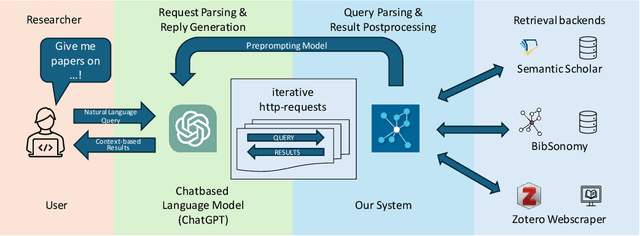



Abstract:The ever-growing corpus of scientific literature presents significant challenges for researchers with respect to discovery, management, and annotation of relevant publications. Traditional platforms like Semantic Scholar, BibSonomy, and Zotero offer tools for literature management, but largely require manual laborious and error-prone input of tags and metadata. Here, we introduce a novel retrieval augmented generation system that leverages chat-based large language models (LLMs) to streamline and enhance the process of publication management. It provides a unified chat-based interface, enabling intuitive interactions with various backends, including Semantic Scholar, BibSonomy, and the Zotero Webscraper. It supports two main use-cases: (1) Explorative Search & Retrieval - leveraging LLMs to search for and retrieve both specific and general scientific publications, while addressing the challenges of content hallucination and data obsolescence; and (2) Cataloguing & Management - aiding in the organization of personal publication libraries, in this case BibSonomy, by automating the addition of metadata and tags, while facilitating manual edits and updates. We compare our system to different LLM models in three different settings, including a user study, and we can show its advantages in different metrics.
Higher-Order DeepTrails: Unified Approach to *Trails
Oct 06, 2023Abstract:Analyzing, understanding, and describing human behavior is advantageous in different settings, such as web browsing or traffic navigation. Understanding human behavior naturally helps to improve and optimize the underlying infrastructure or user interfaces. Typically, human navigation is represented by sequences of transitions between states. Previous work suggests to use hypotheses, representing different intuitions about the navigation to analyze these transitions. To mathematically grasp this setting, first-order Markov chains are used to capture the behavior, consequently allowing to apply different kinds of graph comparisons, but comes with the inherent drawback of losing information about higher-order dependencies within the sequences. To this end, we propose to analyze entire sequences using autoregressive language models, as they are traditionally used to model higher-order dependencies in sequences. We show that our approach can be easily adapted to model different settings introduced in previous work, namely HypTrails, MixedTrails and even SubTrails, while at the same time bringing unique advantages: 1. Modeling higher-order dependencies between state transitions, while 2. being able to identify short comings in proposed hypotheses, and 3. naturally introducing a unified approach to model all settings. To show the expressiveness of our approach, we evaluate our approach on different synthetic datasets and conclude with an exemplary analysis of a real-world dataset, examining the behavior of users who interact with voice assistants.
NL-Augmenter: A Framework for Task-Sensitive Natural Language Augmentation
Dec 06, 2021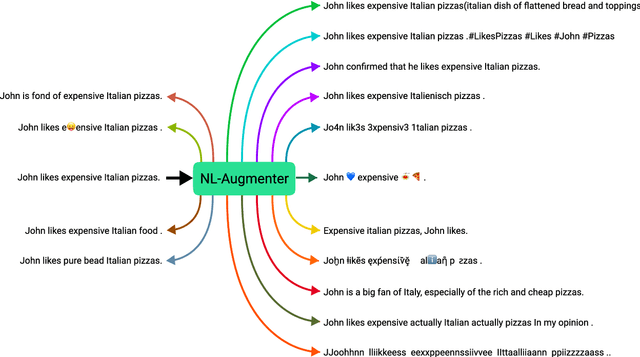
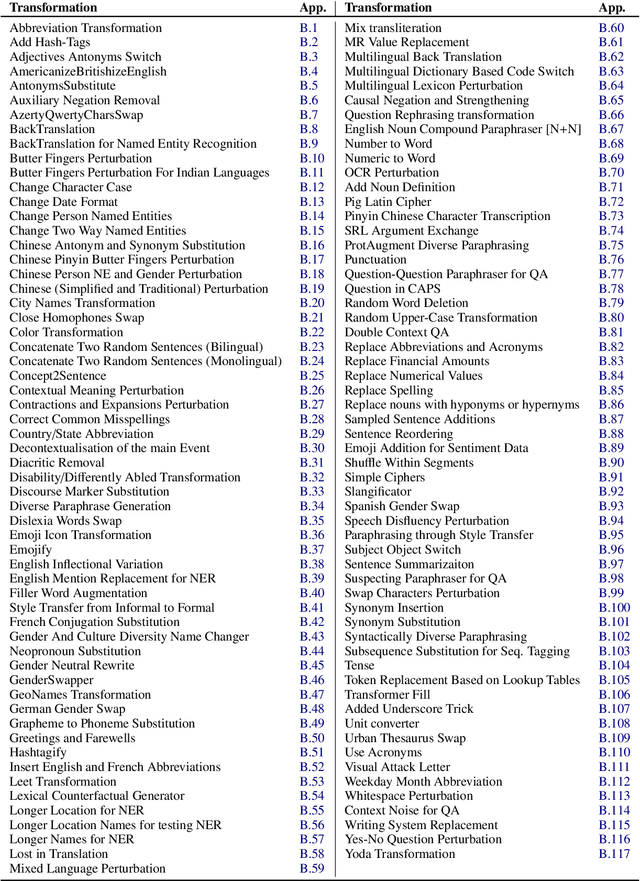
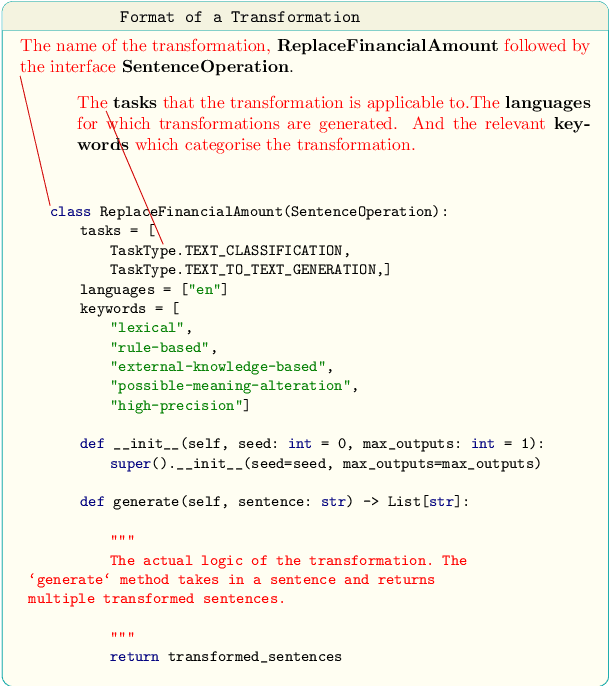
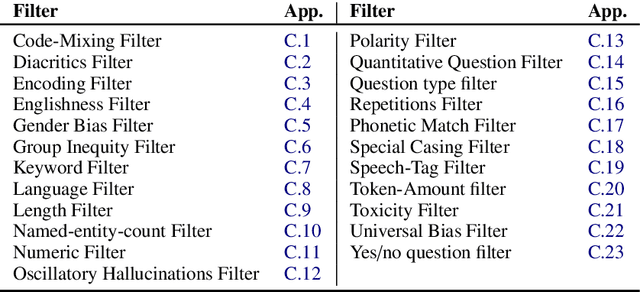
Abstract:Data augmentation is an important component in the robustness evaluation of models in natural language processing (NLP) and in enhancing the diversity of the data they are trained on. In this paper, we present NL-Augmenter, a new participatory Python-based natural language augmentation framework which supports the creation of both transformations (modifications to the data) and filters (data splits according to specific features). We describe the framework and an initial set of 117 transformations and 23 filters for a variety of natural language tasks. We demonstrate the efficacy of NL-Augmenter by using several of its transformations to analyze the robustness of popular natural language models. The infrastructure, datacards and robustness analysis results are available publicly on the NL-Augmenter repository (\url{https://github.com/GEM-benchmark/NL-Augmenter}).
 Add to Chrome
Add to Chrome Add to Firefox
Add to Firefox Add to Edge
Add to Edge